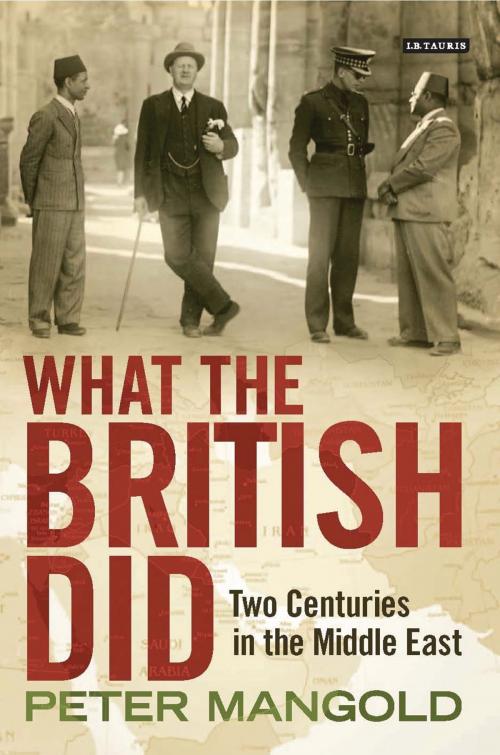What the British Did
Two Centuries in the Middle East
Nonfiction, History, Modern, Social & Cultural Studies, Social Science| Author: | Peter Mangold | ISBN: | 9780857729095 |
| Publisher: | Bloomsbury Publishing | Publication: | April 7, 2016 |
| Imprint: | I.B. Tauris | Language: | English |
| Author: | Peter Mangold |
| ISBN: | 9780857729095 |
| Publisher: | Bloomsbury Publishing |
| Publication: | April 7, 2016 |
| Imprint: | I.B. Tauris |
| Language: | English |
Britain has been engaged in the Middle East for over two centuries. During the Napoleonic Wars it expelled the French from Egypt. During World War I it helped to dismantle the Ottoman empire. During World War II, it defeated the Italians and Germans. In the post-war years, it attempted to reassert its domination of the Middle East but with little success. Today British forces in the region are fighting ISIS. Variously seen as intruders by most of the local populations and nationalists and as protectors by local pliant rulers, the British have been key arbiters in Middle Eastern politics. They created new states, determined who could hold power, resolved disputes and offered security to their clients. In this major new study, Peter Mangold shows how Britain sought to protect its changing interests in the region and assesses the British response to Arab nationalism. He examines the successes and failures of British policy and the reasons it has often proved controversial and accident prone. And he evaluates Britain's complex legacy in the Middle East – its contribution to the stability of Jordan (at least to date) and the Gulf states, set against the instability which has plagued Iraq and the unresolved Palestine conflict. In tracing the history of Britain's relationship with the Middle East, Mangold reveals how Britain's involvement in the Middle East sowed the seeds for today's crises.
Britain has been engaged in the Middle East for over two centuries. During the Napoleonic Wars it expelled the French from Egypt. During World War I it helped to dismantle the Ottoman empire. During World War II, it defeated the Italians and Germans. In the post-war years, it attempted to reassert its domination of the Middle East but with little success. Today British forces in the region are fighting ISIS. Variously seen as intruders by most of the local populations and nationalists and as protectors by local pliant rulers, the British have been key arbiters in Middle Eastern politics. They created new states, determined who could hold power, resolved disputes and offered security to their clients. In this major new study, Peter Mangold shows how Britain sought to protect its changing interests in the region and assesses the British response to Arab nationalism. He examines the successes and failures of British policy and the reasons it has often proved controversial and accident prone. And he evaluates Britain's complex legacy in the Middle East – its contribution to the stability of Jordan (at least to date) and the Gulf states, set against the instability which has plagued Iraq and the unresolved Palestine conflict. In tracing the history of Britain's relationship with the Middle East, Mangold reveals how Britain's involvement in the Middle East sowed the seeds for today's crises.















